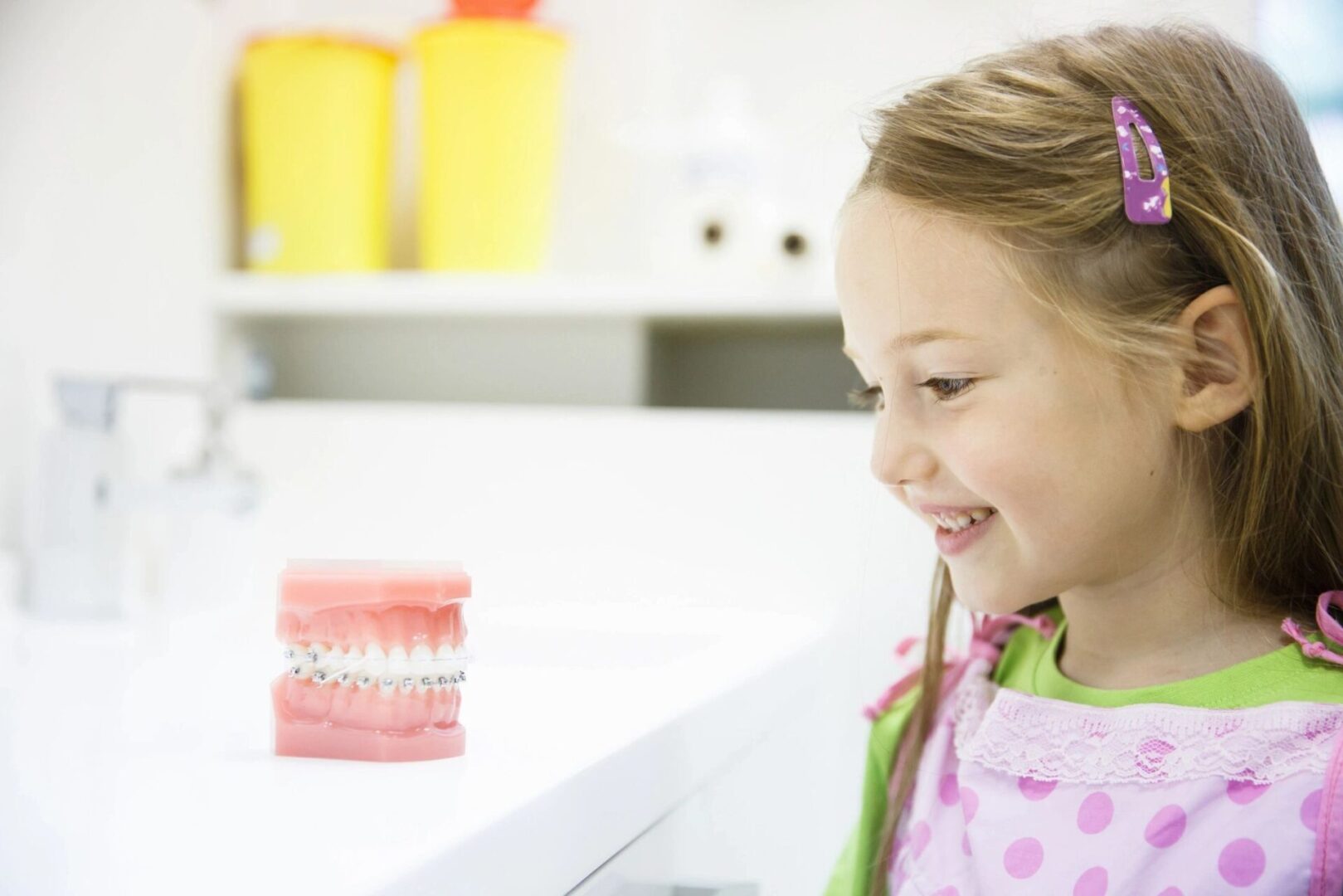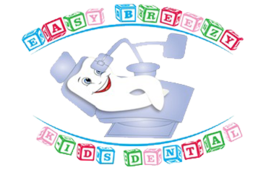Dental Topics
Everything You Need to Know About Children’s Dental Health
GENERAL INFO
Many children are unsure about their first dental visit, but they don’t have to be. Our aim is to make your child’s first visit with us more enjoyable.
Your child should visit a pediatric dentist by his/her first birthday.
Refrain from using words that might create unnecessary anxiety, such as needle, pull, drill, or hurt. The office makes a practice of using more kid-friendly terms that convey the same message.
A checkup every six months is recommended in order to prevent cavities and other dental problems. However, your pediatric dentist can tell you when and how often your child should visit based on individual oral health concerns.
A toothbrush will remove plaque bacteria that can lead to decay. Any soft-bristled toothbrush with a small head, preferably one designed specifically for infants, should be used at least once a day at bedtime.
Fluoridated toothpaste should be introduced when a child is 2–3 years of age. Parents should supervise brushing and make sure the child uses no more than a pea-sized amount on the brush. Children should spit out and not swallow excess toothpaste after brushing.
Parents should take their children to the dentist regularly, beginning with the eruption of the first tooth. Then, the dentist can recommend a specific program of brushing, flossing, and other treatments for parents to supervise and teach to their children.
Thumb and pacifier sucking habits will generally only become a problem if they go on for a very long period of time. Most children stop these habits on their own, but if they are still sucking their thumbs or fingers past the age of five, a mouth appliance may be recommended by your pediatric dentist.
Sealants protect the grooved and pitted surfaces of the teeth, especially the chewing surfaces of back teeth where most cavities in children are found. Made of clear or shaded plastic, sealants are applied to the teeth to help keep them cavity-free. Research has proven that sealants reduce cavities on the chewing surfaces of permanent teeth by 80%.
Putting a baby to bed for a nap or at night with a bottle of anything other than water can cause serious and rapid tooth decay. Sweet liquid pools around the child’s teeth, giving plaque bacteria an opportunity to produce acids that attack tooth enamel. If you must give the baby a bottle as a comforter at bedtime, it should contain only water. After each feeding, wipe the baby’s gums and teeth with a damp washcloth or gauze pad to remove plaque.
Topical fluoride is applied to the teeth to make them stronger and more resistant to tooth decay. A thorough cleaning and fluoride treatment every six months has been shown to be an extremely effective way to prevent dental disease.
EMERGENCIES
If the face is swollen because of a tooth infection, it could be a life-threatening situation and your child needs to go to a hospital emergency room immediately. Place a cold compress on the face until you can see a doctor. Call our office for an emergency appointment to evaluate where the infection is and how to treat it.
If there is bleeding, apply firm yet gentle pressure to the area with a clean cloth or gauze. If you cannot get the bleeding to stop after fifteen minutes, go to the hospital emergency room. Apply a cold compress to swollen or bruised areas. Make sure your child is comfortable and calm. Call our office for an appointment to assess any injury to teeth, jawbone, or tissues around the mouth.
Have your child bite on a clean folded cloth or gauze for fifteen minutes and make sure he/she is resting. Repeat this if necessary.
Baby teeth should NOT be put back into the mouth because it may damage the growing permanent tooth. Your child still needs to be seen at the office to find out if any other teeth, jawbone, or tissues around the mouth are injured.
Contact a dentist immediately. Time is a critical factor in saving a permanent tooth. Find the tooth and gently rinse off any dirt with room temperature water. Hold the tooth by the crown, not the root, and do not scrub it. Place the tooth into its socket and have your child hold the tooth in place. If you are not able to reinsert the tooth, put it in a cup with milk or water and bring it to the dentist.
Rinse dirt from the injured area with warm water. Place a cold compress over the face in the area of the injury to reduce swelling. Call our office immediately to assess further injuries, prevent infection. and repair the tooth.
Many children occasionally suffer from cold sores around the lips and canker sores inside the mouth. These sores usually take seven to fourteen days to heal. There are products at your local pharmacy that will help relieve the pain. Please let us know if these sores occur often or last longer than usual. Some serious diseases may begin as sores and need prescription medications.
HEALTHY DIET
A well-balanced diet is what every child needs. A child needs to eat more fruits and vegetables and less sugary substances.
When children have a high intake of sweet substances, this creates an environment for oral bacteria to create acids that can erode enamel.
Definitely not, but everything should be done in moderation.
Not necessarily, even though a child may have a balanced diet, they may live a community that has a water supply that is devoid of fluoride.
When children practice good oral hygiene habits in conjunction with a healthy diet, this creates the best chances for a caries-free dentition.

Promotions
New Patient exams for $99.99 include:
- Consultation with Dr.
- Cleaning
- X-Rays
- Fluoride Treatment
